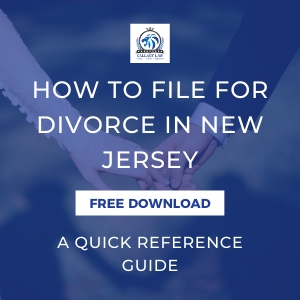You are not alone. Nearly 20 people are physically abused by an intimate partner per minute. One in three women and one in four men experience some form of physical violence at the hands of their partner; for one in four women and one in seven men, the physical violence is categorized as “severe.” Domestic violence accounts for 15% of all violent crime in the US. It can be incredibly isolating, a secret that victims feel they must keep and a burden they carry in silence. You are not alone. Domestic violence victims rights ensure that you have legal recourse; our team of experienced, compassionate attorneys works tirelessly to protect both your safety and your rights.
The New Jersey Prevention of Domestic Violence Act
In 1991, New Jersey’s Prevention of Domestic Violence Act was implemented; the Act was designed to address the shortfalls in law enforcement and judicial responses in these types of situations. The Act protects:
- Any person age 18 or over or any emancipated minor who has been subjected to violence by a spouse, former spouse, or another member of the household
- Individuals, regardless of age, who have been subjected to violence by a current or former dating partner over the age of 18 or by the parent of their child/unborn child
Under the law, domestic violence includes: assault, terroristic threats, false imprisonment, harassment, sexual assault, criminal sexual conduct, criminal trespass, burglary, stalking, lewdness, criminal restraint, and homicide. It may also include offenses like denying access to financial resources (e.g., taking away the bank cards).
Under the New Jersey Prevention of Domestic Violence Act, victims have the right to pursue justice in both criminal and civil courts. They may obtain temporary and permanent restraining orders. After a temporary restraining order is issued, the victim and defendant return to court again, where a judge will determine if a final restraining order is warranted.
If so, this legal document will include restrictions against contact (e.g., defendant must stay at least 500 feet from victim), as well as rules around parenting and finances. Final restraining orders do not expire, and they are honored by every state in the country.
Domestic Violence Victims Rights: Can You Sue Your Abuser?
In the past, you could not sue a family member, including a spouse. Unbelievably – in 2020 – this is still the law in the following jurisdictions:
- Arizona
- Delaware
- Hawaii
- Illinois
- Iowa
- Louisiana
- Missouri
- Ohio
- Texas
- Utah
- Wyoming
- Washington DC
Fortunately, there may be exceptions for cases involving intentional torts, which include assault, battery, etc. Regardless, in New Jersey, you may file civil charges against an intimate partner who has subjected you to violence. Damages may include:
- Lost wages or loss of earning potential
- Loss of child support and/or spousal support
- Medical expenses (including counseling and rehabilitation)
- Costs associated with moving to a new home
- Compensation for property damage/theft caused by the accused
- Legal fees
- Pain and suffering
- Punitive damages
 If you file criminal charges for domestic violence, it does not impact your right to pursue civil damages. Perhaps the most infamous example of this is Goldman v Simpson. OJ Simpson was found not guilty of the 1994 murders of Nicole Brown Simpson and Ron Goldman. The Goldman family sued Simpson in civil court, where a jury found Simpson liable for the wrongful deaths of Goldman and Brown Simpson. They awarded the families $8.5 million in compensatory damages and $25 million in punitive damages.
If you file criminal charges for domestic violence, it does not impact your right to pursue civil damages. Perhaps the most infamous example of this is Goldman v Simpson. OJ Simpson was found not guilty of the 1994 murders of Nicole Brown Simpson and Ron Goldman. The Goldman family sued Simpson in civil court, where a jury found Simpson liable for the wrongful deaths of Goldman and Brown Simpson. They awarded the families $8.5 million in compensatory damages and $25 million in punitive damages.
The question of “can you sue?” is relatively easy to answer. The question of “should you sue?” may be more difficult. We understand that this is a highly emotional decision, but we can tell you that many survivors find it empowering to take action. On a practical level, if your abuser is the primary breadwinner, you may be left struggling to make ends meet. Monetary damages can help you rebuild your life.
Concerns about safety and retaliation are, of course, valid and should be taken seriously. Do not hesitate to call 911 if you are in danger. Domestic abuse hotlines and advocacy groups can provide resources and services, as well as help you develop a safety plan:
- New Jersey Address Confidentiality Program (ACP) Hotline
1 (877) 218-9133
Toll Free-Non-Emergency
“The New Jersey Address Confidentiality Program Hotline provides access to domestic violence information and services, including application procedures referral and advocacy.” - New Jersey Domestic Violence Hotline
1 (800) 572-SAFE (7233)
24 hours a day/7 days a week
“The New Jersey Domestic Violence Hotline provides confidential access to domestic violence information and services, including crisis intervention, referral, and advocacy. Bilingual and accessible to the deaf and hearing impaired.”
No one should feel unsafe in their own homes and in their relationships. And no one ever has the right (or any excuse) to abuse another person, to hurt them, to threaten them, and to deprive them of their rights. As difficult as it is to take action, many survivors achieve a sense of control and even closure.
Contact Callagy Law to discuss your situation, learn more about domestic violence victims’ rights, and explore your options; we can help. You are not alone.
